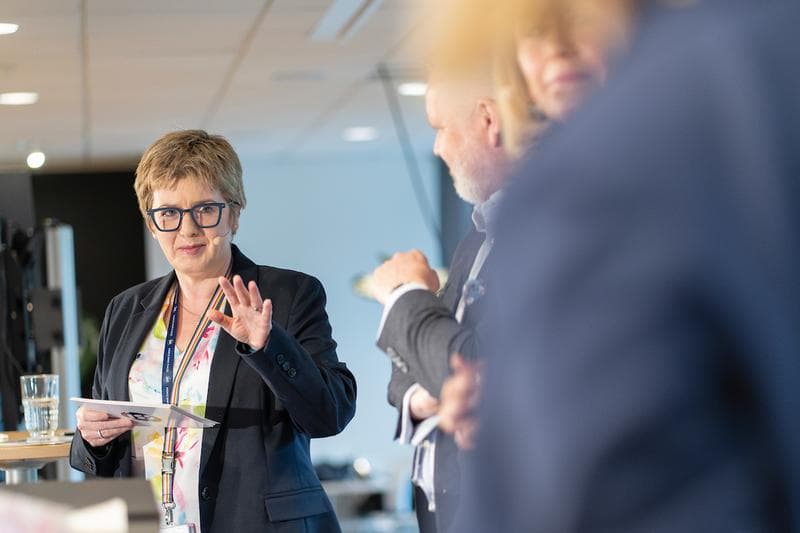We all have responsibility for championing social change
‘’Taking social responsibility seriously and acting on it should be a given for businesses. It’s our duty towards the people in the communities in which we operate – and it’s good for business,’’ said Jacob Aarup-Andersen, Group CEO, ISS when welcoming people from different companies and industries to ISS’s headquarters in Copenhagen to discuss the social responsibility of businesses.
Sharing the stage with Jacob was Margot Slattery, Group Head of Diversity & Inclusion at ISS. ‘’At ISS, we believe that we have a responsibility to champion social change. But no one company can walk alone. Working together, we can make a significant positive impact in improving social mobility and equity. We want to discuss how businesses and social organisations can accelerate our efforts and work more closely together to move the needle on societal social issues.’’
Creating career opportunities for the disadvantaged
Marjolein Kurstjens, Demand Manager Facility Management at PwC Netherlands, and responsible for the Vested contract with ISS, shared her experiences of a three-year ‘learning on the job’ programme that PwC and ISS are running to create career opportunities for disadvantaged young people in the Netherlands.
Marjolein highlighted the numerous positive outcomes of the programme, including the concrete monetary ‘social return on investment’ value, the great commitment from PwC employees and also the positive impact on the students. “They feel they are being treated as grown-ups and they learn what is like to be in a workplace. Many go on to be offered jobs at ISS or continue their education.’’
Accelerating efforts towards increased social mobility and equity
Joining a panel discussion were Corinna Refsgaard, Group Chief P&C Officer at ISS, Hélène van Melle from the Tent Partnership for Refugees, Julie Nicholson, Key Account Manager at ISS Ireland, and Peter Haugaard, HR Director at EY Denmark.
‘’There is such a big potential out there, and if we are unable to provide workplaces for people with physical disabilities and cognitive differences, we will have failed,’’ said Corinna. ‘’This is a business and societal imperative.’’
Hélène spoke about leveraging the talents of refugees. ‘’We see that when integrating refugees into a workforce, other employees appreciate that their company is demonstrating social responsibility. This increases employee engagement and loyalty and also helps attract new employees.’’
Julie explained the role of the Abilities Employee Resource Group (ERG) that she leads at ISS. ‘’Our purpose is to help create an equitable future for placemakers at ISS. We also support the parents and partners of placemakers living with disabilities,’’ she said. ‘’We build awareness amongst all employees and help to develop processes, procedures and tools for hiring managers as well as employees who will be working with people with disabilities.’’
Peter noted, ‘’What we’ve seen over the past couple of years at EY is a major shift from purpose-driven being something nice on top of doing a good job to purpose-driven being absolutely integral to the way of doing business. Be ambitious, be bold, and be passionate.’’
Creating a culture of inclusion
Claire Harvey, Global Inclusion, Engagement and Wellbeing Lead for TP ICAP and British Paralympian shared her inspiring personal story and insights on how businesses can create a culture of inclusion.
‘’It’s so easy when we talk about people who are different, or who have barriers, to tend to think about giving them an opportunity. But we lose sight of the fact that they have so many skills, so much talent, that what we need to give them is a door – a chance to show what they’ve already got rather than give them the skills we assume they don’t have,’’ she said.
Claire focused on the value of creating diverse teams and a culture of inclusion. ‘’We know that diverse and inclusive teams bring great benefits for business – that has been well researched.
‘’That’s really important, because we can spend a lot of time talking about the people who need our help or focusing on how do to get one of every type of person on an organisation’s website homepage, but instead we need to spend more time thinking about what is it that we do that helps people truly thrive.’’

